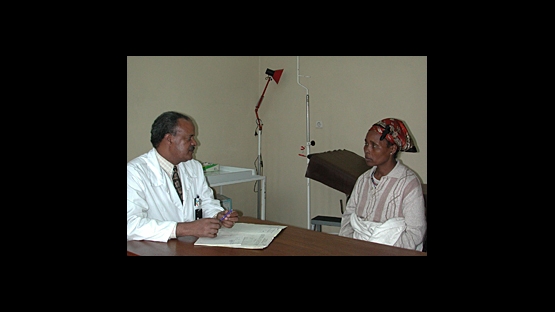Sixty years after radiotherapy machines powered by the radioisotope Cobalt 60 (Co-60) were first introduced to treat cancer they remain a workhorse of radiation oncology.
They are safe and precise. For developing countries gearing up to fight soaring rates of cancer they offer reliability and relatively low operating cost.
Two suppliers, one in the United Kingdom and the other in Canada, provide 95 percent of Co-60 to meet global demand.
Since 2001, with few exceptions, airlines have not been permitted to transport it. Currently most shipping lines refuse to accept it.
"As a consequence there are many countries virtually cut off from delivery of Co-60," said Eliana Amaral, Director of the Division of Radiation Transport and Waste Safety in the IAEA. "This is a shipping issue that has become a crisis of human dimension," she said.
"Without access to Co-60 there are many countries that will be handicapped in building an effective response in the fight against cancer," said Massoud Samiei, head of the IAEA´s Programme of Action for Cancer Therapy (PACT).
Because it´s so highly radioactive the transport of Co-60 is subject to intense safety regulation and protective measures. Cobalt metal, usually in the shape of a pencil or flat disc, is contained in double-skinned steel tubes shipped in hardened flasks. "In 40 years of shipping commercial qualities of Co-60, there have been no radiological incidents," said Amaral.
During three years the IAEA has recorded 87 incidents of refusals to transport Co-60.
"We can only guess what the consequence is for the well-being of cancer patients," said Amaral. Co-60 is also used to sterilize hospital equipment such as single use gloves and syringes, as well as waste.
As part of an action plan that it has developed to address delays and denial in shipping radioactive material, designated class 7 by the International Maritime Organization, the IAEA has established an International Steering Committee, with regional and national committees. Representatives of the three groups will meet at IAEA headquarters in Vienna, from 22 to 26 February.


